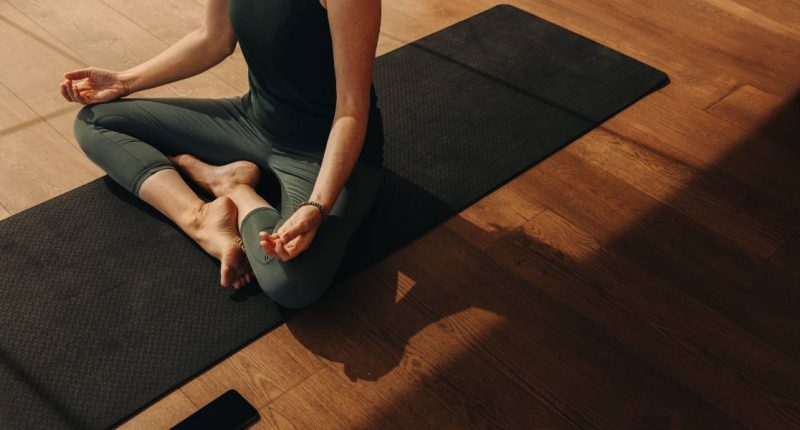Insomnia is best treated by doing Tai Chi and yoga rather than taking sleeping pills, a new study has shown.
Researchers have found that jogging and walking can also improve sleep quality and ease insomnia.
People with insomnia are at greater risk of developing several mental and physical health conditions, such as cardiovascular disease and dementia, prior studies have revealed.
- Knee osteoarthritis pain reduced by yoga
- Yoga can help women with urinary incontinence reduce episodes by 65%
- Altered states of consciousness from meditation and yoga prevalent among adults
Cognitive behavioural therapy is an effective treatment option, but a lack of trained therapists means this option is not always available.
Additionally, drug treatments can be used for insomnia, but they are known to have side effects, experts have said.
Throughout this study, the team of researchers examined which forms of exercise are the most effective at treating insomnia.
They analysed multiple databases involving 1,348 participants and assessed how 13 different treatment approaches eased insomnia.
Seven of the treatment approaches involved exercise and included yoga, Tai Chi, walking or jogging, aerobic plus strength exercise, strength training alone, aerobic exercise combined with therapy and mixed aerobic exercises.
Meanwhile the other approaches included existing treatment, CBT, nothing, sleep hygiene, Ayurveda and acupuncture or massages.
In the trial, the researchers used score systems to assess each participant’s sleep quality, insomnia severity, total sleep time, sleep efficiency, number of awakenings after going to sleep and time taken to fall asleep.
They found that CBT and certain exercise-based interventions were effective at treating insomnia.
Those who did yoga slept for two hours longer than normal and improved their sleep efficiency by almost 15%, the study has reported.
Insomnia serverity was reduced by nearly 10 points among the participants who were walking or jogging, and Tai Chi reduced poor sleep quality scores by more than four points, according to the findings.
The authors said: “With its focus on body awareness, controlled breathing, and attentional training, yoga may alter brain activity, thereby alleviating anxiety and depressive symptoms which often interfere with a good night’s sleep.
“Tai Chi emphasises breath control and physical relaxation and has been shown to decrease sympathetic nervous system activity, dampening down hyperarousal. And its combination of meditative movement and mindfulness may promote emotional regulation, deactivate ‘mental chatter’, and reduce anxiety. It may also help to curb the production of inflammatory chemicals over longer periods.”
- Walking and doing yoga can help treat depression
- Physiological jet lag seen in almost a quarter of young people with poor mental health
- Simple daily habits linked to better mental health
They added: “Walking or jogging may improve sleep by increasing energy expenditure, curbing cortisol production, improving emotional regulation, boosting secretion of the sleep hormone melatonin, and enhancing the amount of deep sleep.
“The findings of this study further underscore the therapeutic potential of exercise interventions in the treatment of insomnia, suggesting that their role nay extend beyond adjunctive support to serve as viable primary treatment options.”
They concluded: “Although current clinical guidelines make only limited mention of exercise, this study provides relatively comprehensive comparative evidence that may inform the development of more specific and actionable clinical recommendations.
“Given the advantages of exercise modalities such as yoga, Tai Chi, and walking or jogging – including low cost, minimal side effects, and high accessibility – these interventions are well-suited for integration into primary care and community health programmes.”
Read the study in the online journal BMJ Evidence Based Medicine.







